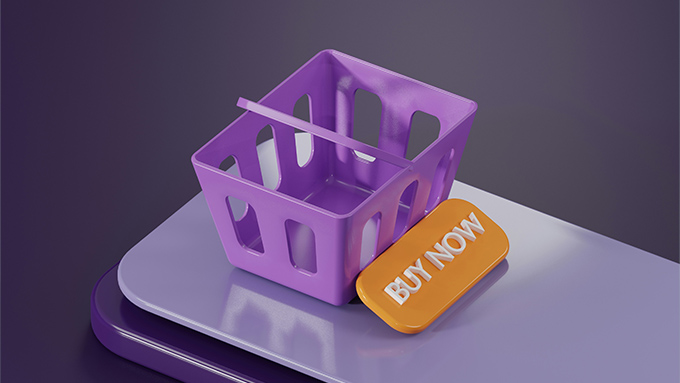Final Sector Inquiry Report of the Competition Authority Regarding Fast-Moving Consumer Goods Retailing
“How simple it is when one knows nothing.”
Ernest Hemingway, For Whom the Bell Tolls
Introduction
Fast-moving consumer goods is undoubtedly one of the sectors that the Competition Authority has been working most intensively since the COVID 19 pandemic. Among the most important developments of this period was the Sector Inquiry initiated on Fast Moving Consumer Goods (“FMCG”) Retailing, which was a precursor to the investigations launched against retailers. As such, the Preliminary Report published on 05.02.2021 clearly outlined the main points of the investigations that would later continue in the field of FMCG. In many respects, the Preliminary Report, which contained highly influential recommendations, addressed competitive concerns in the FMCG market. Perhaps for this reason, many investigations were opened in the FMCG market following the Preliminary Report.
After almost two years following the publication of the Preliminary Report, the FMCG Final Report[1] (“Final Report”) was published on 30.03.2023. Although some of the findings in the Preliminary Report have been stepped back, the Final Report serves as a very clear warning text for the future.
Findings of the Final Report
It should first be noted that the Final Report is the second sector inquiry report written on this subject. The First Report, published in 2012, is actually important as it is the first study to reveal the dynamics of the sector and to analyze it in terms of competition law. However, when compared to the Final Report, the First Report draws a more optimistic framework in terms of competition concerns. The Preliminary Report, which was published before the Final Report, stood out with its rather radical recommendations. For example, the Preliminary Report points out that concentrations in the relevant market have increased, and suggests the re-determination of sector-specific notification thresholds for mergers and acquisitions.
The Final Report particularly emphasizes the growth in the FMCG sector since 2016. The report also sheds light on the changes in the FMCG sector as a result of digitalization. Secondly, the Final Report draws attention to the increasing concentration rates in the relevant market. Indeed, this rate, which was 26% in 2010, increased to 77% by 2021. It is also observed that the shares of the four companies with the highest market share have increased over time, while local and regional markets have lost market share. Interestingly, this concentration was not realized through acquisitions, but through new stores opened by the undertakings. In other words, the undertakings grew organically by opening new branches, which cannot be intervened by competition law. Therefore, the Competition Authority has also abandoned the radical suggestion in the Preliminary Report to lower sector-based turnover thresholds.
The Authority attributes other consequences to the increase in concentrations. Increasing concentration in the FMCG sector has started to negatively affect the undertakings supplying goods and services to retailers. The increase in concentration has also led to an increase in the purchasing power of retailers in the supply market. This buyer power is particularly more evident in the case of the production of private label products for the retailer. The Final Report highlights the importance of the growing retailer-specific product market, noting that the four largest FMCG retailers are also the ones selling private label products.
Therefore, the allegations that retailers engage in unfair commercial practices against suppliers due to their increased buying power is one of the main issues addressed in the Final Report. In the Final Report, it is stated that retailers charge suppliers under various names, extend due dates and unilaterally change the terms of agreements. This situation is characterized as a factor that makes it difficult for small and medium-sized suppliers to operate and adversely affects their competitiveness. Therefore, it is emphasized that preventing such unfair commercial practices is important to ensure competition in the relevant market. The Final Report even suggests that it would be appropriate to introduce a regulation on unfair commercial practices in line with the European Union (“EU”) practices.
The Final Report proposes amendments to the Law on the Regulation of Retail Trade in relation to unfair commercial practices, and suggests the following to be prohibited:
- Due dates exceeding 30 days for spoilable agricultural and food products,
- Due dates exceeding 60 days for other agricultural and food products,
- Short notice cancellations of spoilable foods,
- Unilateral agreement revisions by the buyer,
- Non-transaction related payment requests,
- Transfer of the risk of lost and spoiled goods to the supplier,
- Failure to provide written consent to the supply agreement by the buyer despite the supplier’s request,
- Misappropriation of trade secrets by the buyer,
- Commercial retaliation by the buyer,
- Transferring the cost of investigating consumer complaints to the supplier.
The Final Report also recommends that other arrangements be introduced. In this respect, it is requested that the following be prohibited or that a clear regulation be included in the agreement between the parties in order for retailers to be able to charge such fees:
- Return of unsold products,
- Payment of listing, shelf and inventory fees by the supplier,
- Payment by the supplier for the promotion,
- Payment by the supplier for marketing,
- Payment by the supplier for advertising,
- Charging the supplier for staff to be stationed in areas used by the buyer to sell the supplier’s products.
These proposals are not related to competition law rules in general, but to regulatory rules. Therefore, within the framework of competition advocacy, the Authority proposes to eliminate some of the problems in the relevant market through regulation, which cannot be prevented by competition law rules. In fact, the establishment of an independent body with the authority to conduct unannounced inspections and the right to take ex officio action is also among the recommendations in the Final Report. The need for this body to be equipped with highly effective powers such as requesting information and terminating infringement is also emphasized.
Yet, the most relevant regulatory proposal in the Final Report is the one on administrative fines, which is familiar from competition law. In order to ensure that administrative fines for unfair commercial practices are more effective, the Authority proposes that these fines should be for a period of time until the infringement is terminated and should be proportional, as to be calculated on the basis of the undertaking’s turnover. Thus, if undertakings with high turnover are penalized on a daily basis over a certain percentage of their turnover, it would result in very high and deterrent fines.
In order to prevent the avoidance of these proposed regulations, the Final Report also recommends that the principle of economic integrity, similar to that in competition law, should be adopted and that alternative dispute resolution methods such as mediation and arbitration should not be applied. The Final Report draws particular attention to the risk that such alternative dispute resolution methods may reduce the effectiveness of the relevant body.
The recommendation to ban the “rate difference invoice” practice, which attracted the most attention in the Preliminary Report, is also reiterated in the Final Report. The said practice is a very controversial one, which is characterized as an element of infringement, especially in the retail investigations conducted within the scope of Hub&Spoke allegations. In this respect, it is observed that the defenses raised in such investigations regarding the difference invoice practice are not accepted by the Authority.
Finally, the most surprising proposals of the Final Report are those related to the opening of new branches by retailers. The Authority states that it would not be appropriate to make the opening of a new branch of chain markets to be based on a population criterion, but that the opening of a second branch belonging to the same undertaking within a certain distance can be prevented. It is considered that the huge size of the FMCG retailing market may constitute a significant obstacle for the implementation of the aforementioned regulations, which are familiar from the fuel market.
Similarly, it is believed that the concerns and recommendations in the Final Report regarding private label products or products with specific weights also contain certain difficulties in terms of implementation. The Authority suggests that a buyer share threshold for vertical agreements, similar to the one in the EU, could be introduced in order to address these concerns arising from buyers’ purchasing power. The Final Report also includes a suggestion to unbundle the communication channels for private label products, which is referred to as the “Chinese Wall” practice, in order to prevent the exchange of information between the suppliers of these products and FMCG retailers. Instead of imposing a wholesale unbundling obligation, the Final Report notes that the Chinese Wall practice will be evaluated on a case-by-case basis.
Conclusion
“How simple it is when one knows nothing,” Hemingway said. All recent developments in FMCG retailing prove this statement to be true. This is because the more the Competition Authority examines the sector, the more technical, detailed and complex reports emerge. Therefore, there are significant differences between the FMCG sector inquiry conducted in 2012 and the latest one.
The first observation that one may make about the Final Report is that the 269-page final version adopts a more liberal approach on some issues compared to the Preliminary Report. In a sense, many of the concerns in the Preliminary Report are left to ex post application, i.e. to be evaluated according to the dynamics of the case before the Competition Authority. When the recommendations of the Final Report are compared with the Preliminary Report and especially the investigations conducted in the field of FMCG retailing in the last four years are analyzed, it is possible to make some striking observations.
The most obvious of these is that the Competition Authority is seriously concerned about the concentration in the FMCG sector and increase in buyer power. Since this change occurs through opening new branches, i.e. through internal dynamics, the Competition Authority proposes to regulate the relevant market through regulations rather than competition law-based measures. The only competition law-based change proposal is the introduction of a threshold based on the buyer’s market share for vertical agreements. Yet, the Preliminary Report listed many competition law-based proposals. Most of these proposals are not included in the Final Report.
Nevertheless, it is also seen in the Final Report that the Authority has made very promising regulatory proposals. Some of these are very clear and radical ones, such as those regarding unfair commercial practices. However, some of them, as the distance restriction in the fuel sector, contain uncertainties regarding their implementation. Because, it is very difficult to make such measurements in a huge market such as FMCG retailing. Perhaps for this reason, the Authority recommends the establishment of an independent audit body and granting this body “super powers” such as on-site inspections, imposing fines and termination of infringement, as in competition law. As a matter of fact, only if a separate audit body is established and equipped with such powers, it will be possible to carry out the proposed actions in the FMCG market. Considering the scope and number of ongoing investigations, it is not difficult to predict that the debate on FMCG will continue for a long while.
- For detailed information, see https://www.rekabet.gov.tr/tr/Guncel/turkiye-hizli-tuketim-mallari-perakendec-28b0d14b05cfed118eb200505685da39 (Access Date: 02.05.2023).
All rights of this article are reserved. This article may not be used, reproduced, copied, published, distributed, or otherwise disseminated without quotation or Erdem & Erdem Law Firm's written consent. Any content created without citing the resource or Erdem & Erdem Law Firm’s written consent is regularly tracked, and legal action will be taken in case of violation.
Other Contents

The U.S. District Court for the District of Columbia (“Court”) issued its memorandum opinion (Memorandum Opinion) on November 18, 2025, in the antitrust case (“Case”) between the Federal Trade Commission (“FTC”) and Meta Platforms Inc. (“Meta”). The FTC alleges that Meta monopolized the market…

No-poach agreements, which have become one of the most prominent concepts in global competition law in recent years, are defined in the Glossary of Competition Terms as “agreements, whether direct or indirect, whereby one undertaking agrees not to make job offers to, or hire, the employees of another...

The Competition Board (“Board”) has broad powers to request information from undertakings. The legal basis for this authority is provided by Article 14 of Law No. 4054 on the Protection of Competition (“Law No. 4054”). Under this provision, the Board may request any information it deems necessary from public...

Competition authorities around the world have increasingly focused on labor market infringements under competition law, issuing new regulations and guidance recently. Notable examples include the U.S. Department of Justice and Federal Trade Commission’s joint guidance, the Japanese Fair Trade Commission’s...

Chapter 8 of the General Data Protection Regulation (“GDPR”) sets out the legal remedies available to data subjects in the event of a breach of their rights under the GDPR. Accordingly, each data subject has a right to lodge a complaint with the supervisory authority of the Member State in which they reside, work...

Mergers and acquisitions play a critical role in shaping the competitive structure of the market. Although such transactions can lead to positive outcomes such as the provision of products and services at lower prices, the development of new products and technologies, and improvements in quality, they may also...

Technology and the opportunities it brings undoubtedly play a key role in strengthening the competitiveness of market players. In this context, pricing algorithms that enable undertakings to monitor publicly available prices and optimize their own pricing strategies have become widely used, especially by digital platforms...

The Regulation on Fines to Apply in Cases of Agreements, Concerted Practices and Decisions Restricting Competition, and Abuse of Dominant Position (“Former Regulation on Fines”), which entered into force upon its publication in the Official Gazette dated February 15, 2009 and numbered 27142, was...

In the past years, the Turkish Competition Board (“Board”) has closely monitored the activities of undertakings operating in the retail sector. As a result of the Board’s record of administrative fines, horizontal type of violations in the retail sector have been highly publicized. Vertical violations such as resale price...

In recent years, numerous automobile manufacturers have announced their goals to reduce carbon emissions, with many brands setting net-zero carbon targets spanning from production processes to the lifecycle of their vehicles. While ongoing debates persist regarding the significantly higher carbon footprint of...

Under Article 15 of Law No. 4054 on the Protection of Competition (“Law No. 4054”), the Competition Board (“Board”) may conduct on-site inspections at the undertakings’ premises when it deems necessary in fulfilling the duties assigned to it. During the on-site inspection, the Board is authorized to examine all...

Agreements and information exchanges between undertakings in labor markets have recently been examined in various preliminary investigations and investigations initiated by the Turkish Competition Authority (“Authority”). Following the investigations in which some undertakings were subject to...

The Turkish Competition Board’s (Board) decision regarding the acquisition of the international road transport business line of Ekol Lojistik AŞ (Ekol) by DFDS A/S (DFDS) has been one of the most prominent transactions on the competition law agenda recently...

The Competition Board (“Board”) has broad powers to request information from undertakings. The Board’s authority to request information arises from Article 14 of the Law No. 4054 on the Protection of Competition (“Law No. 4054”). Under the relevant provision, the Board may request any information it deems...

Doğuş Otomotiv Servis ve Ticaret A.Ş. (Doğuş) applied to the Turkish Competition Authority for an exemption for the practice of recommending basic wages to be applied to sales and after-sales service employees of its authorized dealers and distributors...

Access to Instagram was blocked ex officio by the Information and Communication Technologies Authority (ICTA) as of 2.08.2024. Under Article 8 of Law No. 5651 on the Regulation of Publications on the Internet and Combating Crimes Committed Through These Publications, ICTA can issue an ex officio access...

It is well known that agreements between employer undertakings with regards to their employees, such as wage-fixing and non-poaching agreements, along with competitively sensitive information exchanges have been under the scrutiny of competition authorities all over the world, including the Turkish Competition...

Automotive is one of the sectors in which the world’s most significant investments are made. The Competition Board (“Board”) has been closely interested in the automotive sector over the years and has conducted various examinations and studies in this field...

Competition authorities around the world continue unabated to investigate competition concerns arising from data collection and processing activities of digital platforms and impose severe sanctions as a result...





The startup ecosystem in Turkey has experienced notable growth in recent years. In the last quarter of 2023, 81 startups secured a combined investment of around 60 million dollars. While the number of investments remained consistent when comparing the third quarter periods of 2022-2023, there was a decrease...

Hub and Spoke cartel is a type of violation that is not clearly defined and regulated under Law No. 4054 on the Protection of Competition (“Law No. 4054”). Decisional practices of foreign competition authorities, particularly the UK Competition and Markets Authority’s decisions (“CMA”), are instructive concerning...

The Competition Board ("Board") made an addition to its line of decisions on resale price maintenance with its decision on Sunny Elektronik Sanayi ve Ticaret A.Ş. ("Sunny") . In its decision, the Board thoroughly examined the allegations regarding Sunny's involvement in maintaining resale prices and restricting...

It is observed that the Competition Authority (“Authority”) has recently scrutinized various industries such as fast-moving consumer goods, labor market, pharmaceuticals, and cement. When the reasoned decisions of the Competition Board (“Board”) published in October are examined, it can be seen that the...

Jules Verne says, “Everything on earth has a limited lifespan, nothing that will exist forever can be created by human hands”. Perhaps change is the only constant concept in all our lives. Despite two major world wars and countless periods of crisis, humanity has been undergoing a great change and...

At the meeting of the Fédération Internationale de Football Association (“FIFA”) held on 16 December 2022, the FIFA Council approved the FIFA Football Agents Regulations (“FFAR”). In the FFAR, various amendments have been made, such as the introduction of a maximum service fee limit that football agents are...

Resale Price Maintenance (RPM) is still considered a hardcore restriction under the recently revised Vertical Block Exemption Regulation (VBER), which means that it cannot benefit from a statutory exemption under Article 101(1) TFEU, unlike certain other types of vertical agreements. However, it has been debated...

In competition law, it is important to accurately determine the concept of undertaking, especially in terms of mergers and acquisitions. Therefore, the concept of economic entity aims to reveal the economic units covered by the undertakings. The relationship between the concept of economic entity and family ties comes...

In these days when the Competition Board (“Board”) frequently imposes administrative fines for preventing on-site inspections and both the Competition Authority (“Authority”) and undertakings take legal and technical measures regarding on-site inspections, a striking development has occurred. In its decision...

Online advertising has become an important source for businesses for promoting products and services and meeting consumers, as a result of the rapid development of information technologies and increase in the use of internet. Delivering targeted messages to consumers at the right time through the digital...

Selective distribution systems refer to a type of distribution system in which suppliers commit to selling the contracted goods or services directly or indirectly to distributors selected based on specified criteria, while the distributors commit not to sell the said goods or services to unauthorized...

In the decision of the Constitutional Court ("Constitutional Court" or "Court") dated 09.11.2022, numbered 2020/67 E. 2022/139 K. (the "Decision"), the annulment of certain articles of the Law Amending the Law on the Protection of Competition No. 4054 ("Law No. 7246") was requested...

In Turkish competition law, certain types of mergers and acquisitions are subject to Turkish Competition Board’s (“Board”) approval in order to gain legal validity. Pursuant to Article 7 of the Law No. 4054 on the Protection of Competition (“Law No. 4054”), the Board is competent to define mergers and acquisitions...

Recently, the Competition Board (the Board) had imposed administrative fines on banks and financial institutions for failing to respond to the request for information within the scope of a preliminary investigation.[i] The request for information that lays the groundwork for the administrative fine imposed by...

Amazon, a world-famous company, is an e-commerce company that operates the world’s largest online shopping platform. In the backstage, Amazon is a data-driven company whose retail decisions are mostly driven by automated systems, fueled by the relevant market data. That being said, Amazon has a dual...

The right to make on-site inspections is one of the Competition Board’s (“Board”) most important tools for revealing whether Law No. 4054 on the Protection of Competition (“Law No. 4054”) has been violated. The effective use of this authority is quite important in terms of obtaining fruitful results from...

“Harese” is an interesting Arabic word. There is a thorn that camels love very much in the desert. The camel eats the thorn with great greed. So much so that, its mouth bleeds as it eats, but it doesn't stop eating. The taste of the thorn is mixed with the salty taste of its own blood. This mixed taste drives the camel...

Turkey’s leading pay television service provider, Krea İçerik Hizmetleri ve Prodüksiyon A.Ş. (“Digiturk”), is frequently the subject of complaints made to the Competition Authority (“Authority”). In fact, the Competition Board (“Board”) issues a new decision about Digiturk almost every year. In these decisions...

The French Competition Authority (Autorité de la Concurrence), within the scope of the competition law proceeding initiated upon the complaint of Criteo SA (“Criteo”), accepted the commitments proposed by Meta Platforms Inc., Meta Platforms Ireland Ltd., and Facebook France...

While the scope of Competition Board’s (“Board”) power to conduct on-site inspections has increased with the introduction of Guidelines on Examination of Digital Data during On-site Inspections (“Guidelines”), nowadays the amount of monetary fines imposed on undertakings continue to...

The hub and spoke cartel, which is a relatively new type of violation in terms of Turkish competition law, is defined as the indirect exchange of information between two independent undertakings which are horizontal competitors on the supplier or retailer level, through another undertaking...

The settlement mechanism has only recently been introduced to Turkish competition law practice. It entered into force with the amendment made to the Law on the Protection of Competition (“Law”) numbered 4054 on 16.06.2020, and has been in effect for less than two years. In this relatively...

Due to their increasing share in the economy and rapid growth rate, e-marketplace platforms have come under the increasing scrutiny of the Turkish Competition Authority (“Authority”) as well as many competition authorities around the world...

Pursuant to the Amendment Communiqué Concerning the Mergers and Acquisitions Requiring the Competition Board’s Approval (“Amending Communiqué”) published in the Official Gazette dated March 4th, 2022 and numbered 31768, certain amendments have been introduced...

The Competition Board (“Board”) has recently published a reasoned decision in which it evaluated BSH Ev Aletleri Sanayi ve Ticaret A.Ş.’s (“BSH”) request for negative clearance or exemption with regard to its practice of prohibiting authorized dealers from making sales through online marketplaces...

Shahmaran, a Mesopotamian myth, is believed to take place in Tarsus. According to the myth, the shah of snakes is the immortal and omniscient "Shahmaran." Shahmaran is described as a beautiful woman living in her cave with her snakes...


During the COVID-19 pandemic, competitive concerns about the pricing behavior of chain markets, manufacturers, and wholesalers engaged in the retail trade of food and cleaning supplies led to an investigation by...

When the past decisions and the recent decisions of the Competition Board (“Board”) are examined, a significant increase can be observed in the number of decisions where the Board found hindrance or obstruction of on-site inspections. This situation shows that...

The European Commission began investigating the collusive behavior of Credit Suisse, UBS, Barclays, RBS, and HSBC in the Foreign Exchange (forex) spot trading market in 2019. With the recent press release dated 02.12.2021, the Commission announced that the case is now closed...


Digitalization, in particular, necessitates the rewriting of competition law rules. Competition law is at the center all questions regarding e-commerce and digital platforms. The aforementioned platforms, which have become prominent due to innovations in...

















































